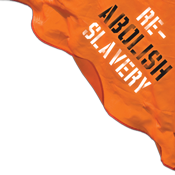“At this point, all sense of thrift has fallen away. We grew up in a tightened house, where there was no allowance, where asking for $5 from our father elicited the heaviest of sighs, required detailed plans for repayment. Our mother was far worse — would not even shop in Lake Forest, where everything was overpriced, would instead drive ten, twenty, thirty miles to Marshalls, to T.J. Maxx, for bargains, for bulk. Once a year we would all pile into the Pinto and would drive to a place on the west side of Chicago, Sinofsky’s, where for $4, $5 each we’d buy dozens of slightly flawed rugby shirts, holes here and there, extra buttons, collars ruined by bleach, pink bleeding into white. We grew up with a weird kind of cognitive dissonance; we knew we lived in a nice town — our cousins out East often made that point to us — but then, if this was true, why was our mother always fretting aloud about not having the money to buy staples? “How will I even buy milk tomorrow?” she would yell at him from the kitchen. Our father, who was out of work a year here, a year there, never seemed impressed with her worry; he seemed to have it all worked out. Still, we were ready for and expected sudden indigence, to be forced out of the house in the middle of the night, and into one of the apartments on the highway, at the edge of town. To become one of those kids.
“It never happened, of course, and now, though we are not rich, and there is very little money actually coming in, Beth and I have tossed away the guilt associated with spending it. When it’s a matter of expense versus convenience, the choice is not a choice. While my mother would have driven forty miles for a half-priced tomato, I’ll pay $10 for it if it means I don’t have to get in the car. It’s a matter of exhaustion, mostly. Fatigue loosens my wallet, Beth’s even more, loosens the checkbook tied to Toph’s account. We are done sacrificing, Beth and I have decided — at least when it’s unnecessary, when it involves money, which, for the time being at least, we have.” (>>)





